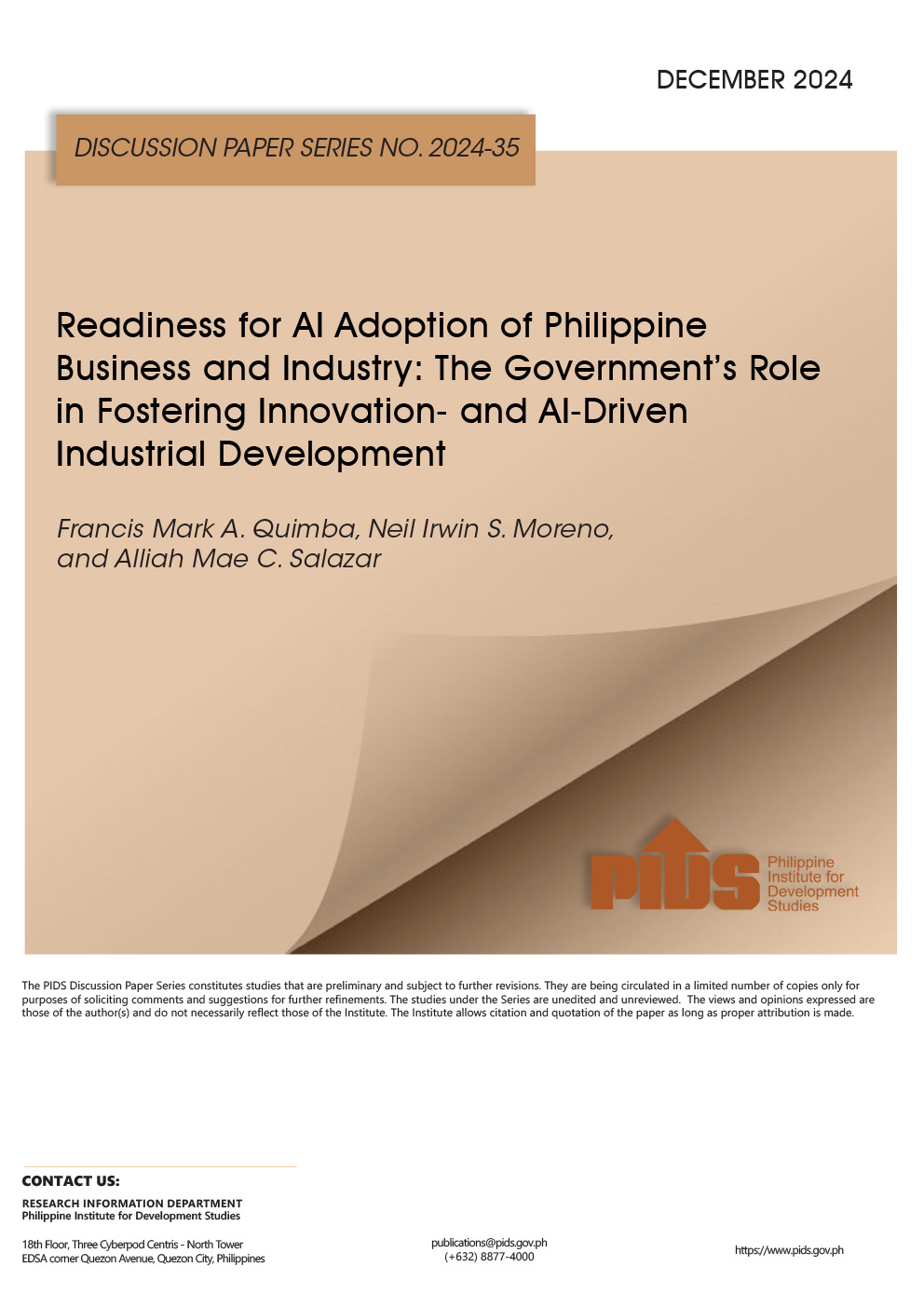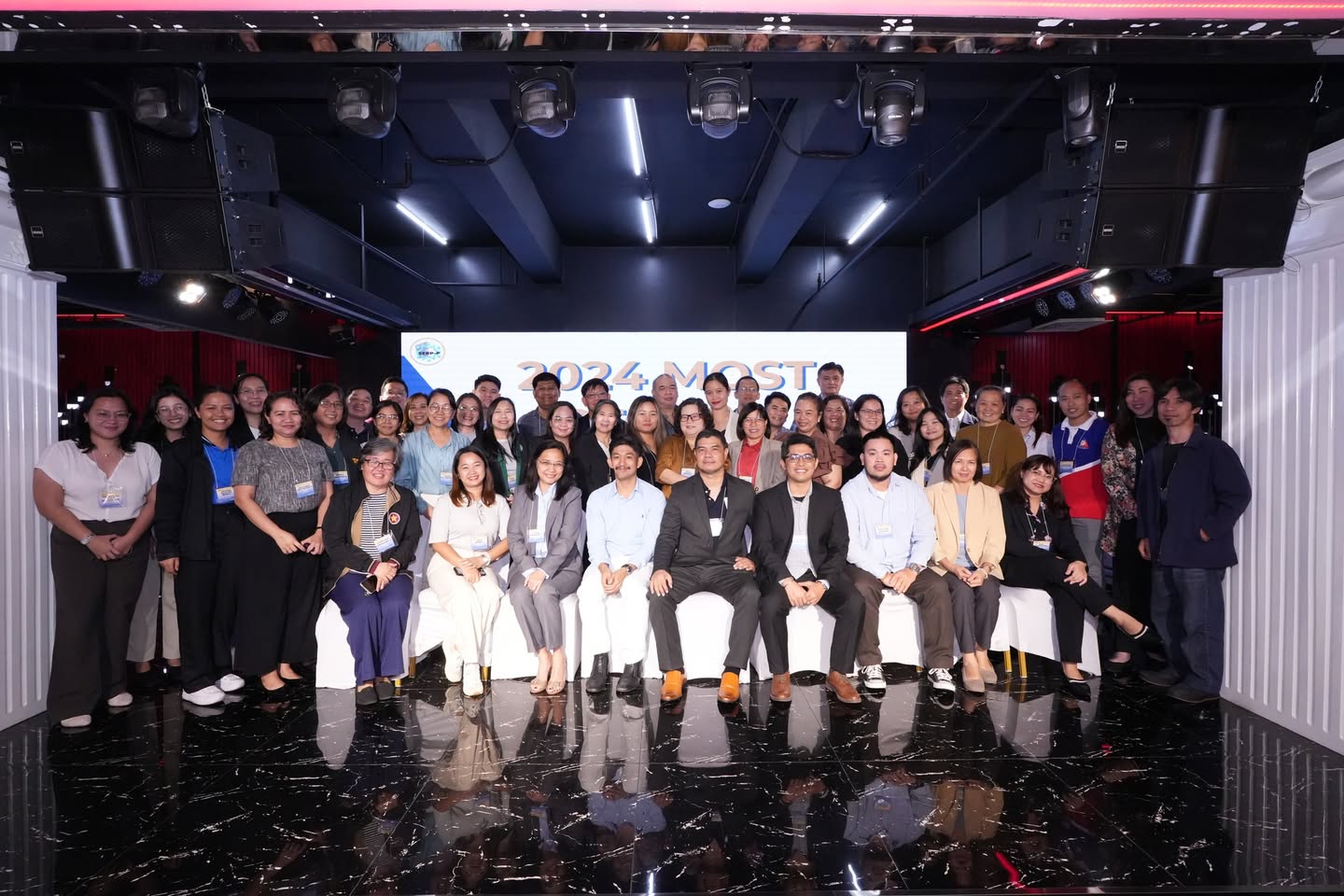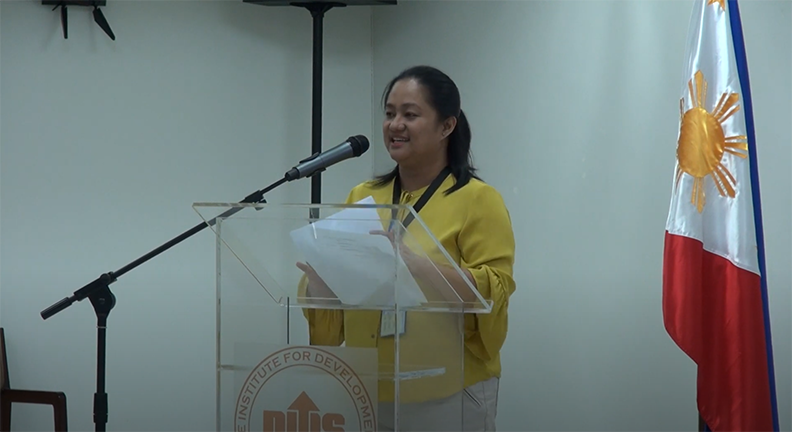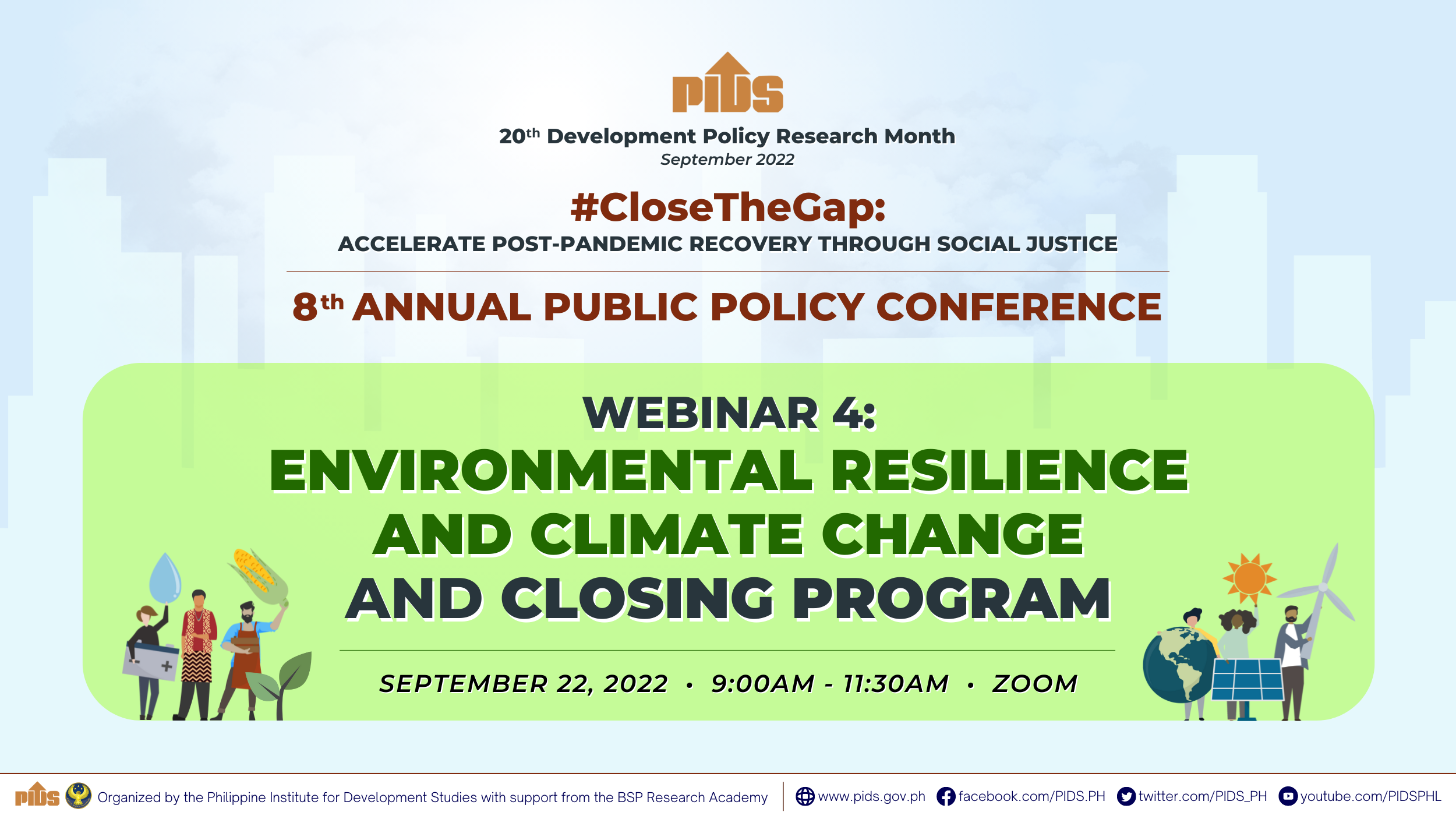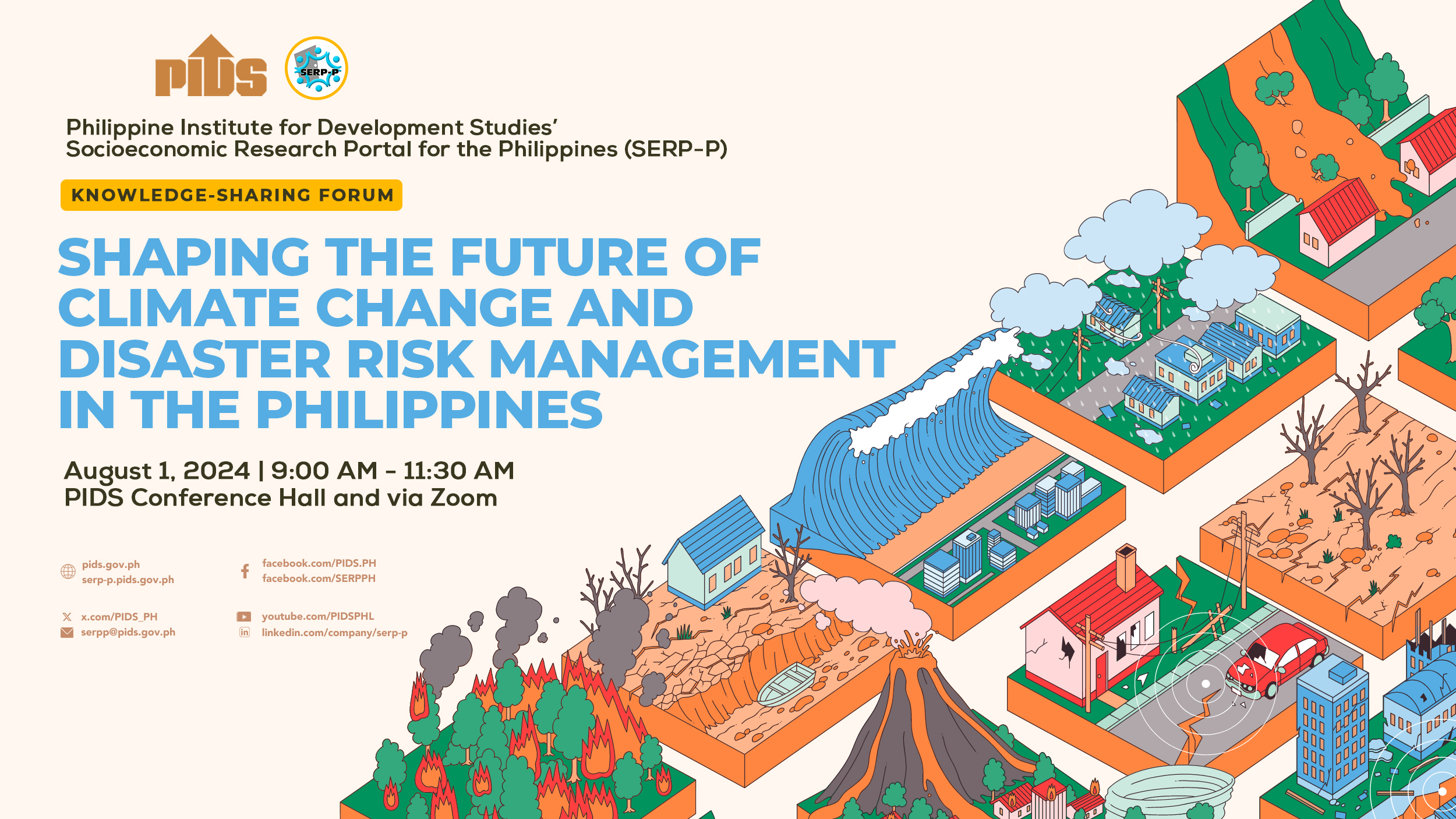A NEW set of social protection programs is needed to ensure that the needs of Filipinos expected to be displaced by the Fourth Industrial Revolution (FIR) will be addressed, according to the Philippine Institute for Development Studies (PIDS).
In an interview at the sidelines of the commemoration of the Development Policy Research Month (DPRM) early this week, PIDS senior research fellow Jose Ramon Albert said the FIR will leave behind some Filipinos, particularly the illiterate and elderly.
This year’s DPRM theme is “Harnessing the Fourth Industrial Revolution: Creating Our Future Today” (Filipino translation: “Isulong ang Fourth Industrial Revolution Tungo sa Katuparan ng Ating Kinabukasan Ngayon”).
“This is where social protection comes in. That’s why you have to rethink. The traditional mode of thinking when it comes to social protection and even labor policy has always been job security, that’s why the endo [is] being removed, but is it the right thing? If you will be moving from one job to another, shouldn’t we think of income security rather than job security?” Albert said.
“Right now, our concept of pantawid [stopgap cash dole-out] is just the poor people identified, they have children, but what if they don’t have children? What if they are already seniors? We don’t have a road map [for them that’s why] we know some people will potentially be left behind,” he explained.
Out-of-the-box ideas
Albert said for those Filipinos who will find themselves out of jobs in the event that their companies automate, social protection systems should also be ready to provide them with resources, not only to tide them over, but also to make them more financially secure.
He said there are those who would argue that a Universal Basic Income (UBI) may be a better option to ensure that all workers will have a stable source of income even when they do not have jobs, but there are critics who argue that this may make them “lethargic.
Still, Albert said this does not mean that out-of-the-box ideas, such as UBI, and an unemployment pantawid are not worth considering. This is why he thinks measures to improve social protection systems or other measures to cushion the impacts of the FIR must be tested this early.
Albert, along with other experts, including Trade Assistant Secretary Rafaelita Aldaba, believes the FIR is not something that will happen in the near or far future, but is something that is already being experienced today.
Some of these innovations are being seen in biotechnology, digital technology, nanotechnology and neurotechnology. Aldaba said this is the reason many sectors of the economy are already experiencing the changes brought about by these innovations.
Financing champion
Amid all these concerns, which are on top of the actual need to adapt and invest in innovation to cope with the dawning of the FIR era, Albert said the FIR requires a champion, particularly in terms of financing.
“At the end of the day, you also need to put funding and right now, many of our tax-reform measures, which to some extent are very important, [are] more for infra; while TRAIN [Tax Reform for Acceleration and Inclusion] 1 says 30 percent will go to social protection, these will be for those who will be affected. Regardless of TRAIN, you need to strengthen social protection in the wake of the Fourth Industrial Revolution,” Albert said.
Potential ‘casualties’
hese finances will go a long way, especially for thousands of working-age Filipinos who remain illiterate. Since they cannot read and write, they can only do menial jobs, which can easily be automated and leave them jobless and poor.
Albert said adult illiteracy remains a concern in the Philippines and so is the desire of many adults to continue their studies. But, he said, there are no facilities that allow them to do this
In a speech on Tuesday, Philippine Center for Islam and Democracy President Amina Rasul-Bernardo said their group conducted a survey on adult illiteracy in the Autonomous Region in Muslim Mindanao (ARMM) and found that 500,000 adults are illiterate, or one-third of the labor force in Mindanao.
But Bernardo said that when she became a consultant for the Pantawid Pamilyang Pilipino Program (4Ps), she found the estimate of the government is even higher: at 1 million adults who are illiterate in Mindanao.
She said making adults literate will help many members of the labor force transition into higher-skilled jobs that pay better and have the means to secure their futures in the FIR.
“An easy or low-hanging fruit or endeavor to add to resiliency is to make adults literate. I mean, come on, it’s not rocket science. It’s so obvious it amazes me why the government does not do it. At P5,000 per adult, come on! So literacy, education, clearly is important for us. If we are just going to make sure that whatever investment we have in the industrial revolution also does not take away from the need to help the other [Filipinos left behind],” Bernardo said.
Low coverage
Last month Asian Development Bank (ADB) Principal Social Development Specialist Sri Wening Handayani said that if Asian countries fail to adopt innovative employment and social protection measures, many citizens won’t be able to afford retirement.
In an Asian Development blog released on Tuesday, Handayani said social protection can improve the future of Asian workers, particularly considering today’s gig economy where workers have short-term contracts, or are working as freelancers, without any benefits such as retirement packages.
Currently, Handayani said, the coverage of social protection programs in Asia is already very low compared to European countries.
Based on the ADB’s Social Protection Indicator, less than half of Asia’s population was fully covered by at least one social protection scheme in 2015.
Handayani said the range varies from Japan with more than 90 percent of coverage to Nepal with less than 30 percent coverage.
To be sure, the Philippines itself still has a long way to go in ensuring that the illiterate, low-skilled citizens can have some protection or are given timely interventions to boost their skills even before they grow old. And one can only hope such can be done before they get completely swamped by the tide of change.



